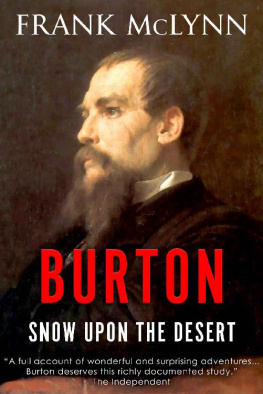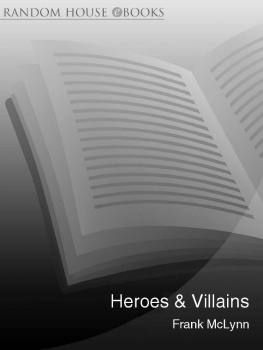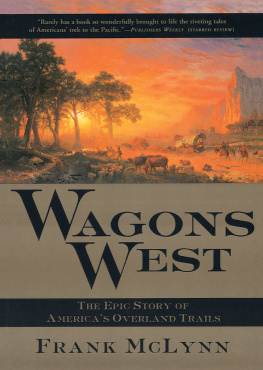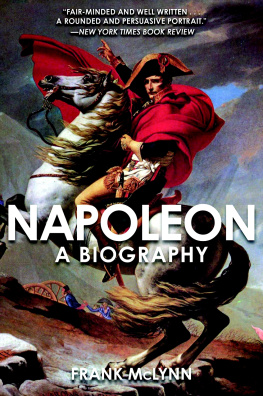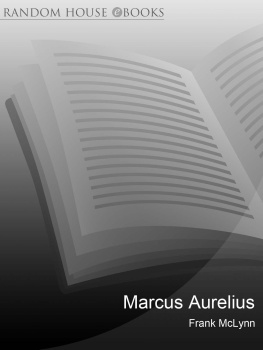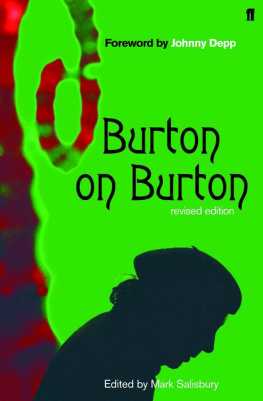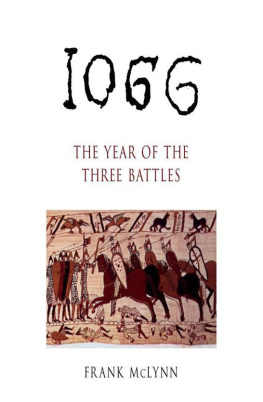Frank McLynn - Burton: Snow Upon the Desert
Here you can read online Frank McLynn - Burton: Snow Upon the Desert full text of the book (entire story) in english for free. Download pdf and epub, get meaning, cover and reviews about this ebook. year: 2020, publisher: Sharpe Books, genre: Non-fiction / History. Description of the work, (preface) as well as reviews are available. Best literature library LitArk.com created for fans of good reading and offers a wide selection of genres:
Romance novel
Science fiction
Adventure
Detective
Science
History
Home and family
Prose
Art
Politics
Computer
Non-fiction
Religion
Business
Children
Humor
Choose a favorite category and find really read worthwhile books. Enjoy immersion in the world of imagination, feel the emotions of the characters or learn something new for yourself, make an fascinating discovery.
- Book:Burton: Snow Upon the Desert
- Author:
- Publisher:Sharpe Books
- Genre:
- Year:2020
- Rating:3 / 5
- Favourites:Add to favourites
- Your mark:
- 60
- 1
- 2
- 3
- 4
- 5
Burton: Snow Upon the Desert: summary, description and annotation
We offer to read an annotation, description, summary or preface (depends on what the author of the book "Burton: Snow Upon the Desert" wrote himself). If you haven't found the necessary information about the book — write in the comments, we will try to find it.
Burton: Snow Upon the Desert — read online for free the complete book (whole text) full work
Below is the text of the book, divided by pages. System saving the place of the last page read, allows you to conveniently read the book "Burton: Snow Upon the Desert" online for free, without having to search again every time where you left off. Put a bookmark, and you can go to the page where you finished reading at any time.
Font size:
Interval:
Bookmark:
Burton: Snow upon the Desert
Frank McLynn
Frank McLynn 1990
Frank McLynn has asserted his rights under the Copyright, Design and Patents Act, 1988, to be identified as the author of this work.
First published in 1990 by John Murray Publishers.
This edition published in 2020 by Sharpe Books.
TABLE OF CONTENTS
Preface
IT is often claimed that, since his wife Isabel burned his diaries and journals, there is really little more to be said about Sir Richard Burton than we already know. There is no point in pretending that the loss of these private papers is not an incomparable blow to the student of his life. But a wealth of archival material does exist, which no previous biographer has used. Foremost among this is the consular correspondence between Burton and his superiors at the Foreign Office, especially for the years 1861-71. Other hitherto unused sources are the Michell and Mackinnon Papers at the School of Oriental and African Studies, University of London, the Blackwood Papers at the National Library of Scotland, and the Royal Archives at Windsor Castle. Stanleys private papers contain a number of lengthy and penetrating observations on Burton and, since the last scholarly biography (Fawn Brodies The Devil Drives, 1967) the Royal Geographical Society has acquired new holdings of relevance, notably photocopies of the correspondence between Speke and Sir George Grey from Auckland Public Library. Additionally, there are published collections of primary material which have eluded previous biographers by their obscurity. For the South American years this would include the journals of F.J. Stevens and the travel writing of William Hadfield, but the pattern also holds good for the other periods of Burtons life.
Yet scholarship does not a biography make, at least not unaided. I am fully persuaded of the validity of psychobiographical techniques, even though there are increasing signs of hostility to this methodology in English literary circles. This is not the place to rehearse the familiar arguments for and against. I can do no better than refer the interested reader to the work of that peerless historian Peter Gay. This is not the first life of Burton to approach him from the perspective of psychohistory, but anyone acquainted with the work of Fawn Brodie will see at once that my approach and conclusions are very different.
My list of those to whom acknowledgements are due must be headed by Her Majesty the Queen, for gracious permission to use the Royal Archives. Lady de Bellaigue, the Registrar at Windsor Castle, was her usual singularly helpful self. At the Royal Geographical Society I must single out Mrs Christine Kelly, the archivist, for special mention, not only for her professionalism but for the rarer gift of lateral thinking when it comes to helping a researcher. David Ward, librarian at Royal Holloway and Bedford College, University of London, also gave valuable assistance. But the most important influence on the book was my wife Pauline, with whom I conducted many a Socratic dialogue on Burtons impulses and motives.
Twickenham January 1990
: Childhood and Youth
RICHARD BURTON was born on 19 March 1821 at Torquay.
The nineteenth was also the date of the last day he spent on earth - a fact the superstitious Burton, with his fascination with numerology and cabbalistic signs, would have found significant. There were many such coincidences in Burtons career which he, a Jungian avant la lettre, would have relished. Burton prided himself on his second sight, said to have been inherited from his mother, who displayed her Scottish fey presentiment by saying, when she first entered the house at Bath where she later died: I smell death here. Even his mothers maiden name, Baker, was destined to be a significant one in Burtons career. Apart from Burtons own use of it, it was the surname of his personal physician, as well as of one of his great rivals in the exploration of the Nile, and one of his scholarly interpreters. It is hardly surprising that the adult Burton was so strongly attracted to Islam. There was so much synchronicity in his life as to suggest that its pages had indeed in some occult sense already been written. Kismet, baraka - the Western clichs about the Arab world trip easily off the tongue, but they do seem peculiarly apt for the career of Islams greatest Western interpreter.
Burtons father, Joseph Netterville Burton, was a feckless, faineant army officer, whose military career came to an end in the year of Richards birth. The Burtons claimed descent on the male side from a certain Edward Burton who had been knighted by Edward IV during the Wars of the Roses. Joseph Nettervilles father, the Reverend Edward Burton, Rector of Tuam in Galway, was himself the son of an English clergyman who had emigrated to Ireland and there married a girl of alleged Franco-Irish lineage. This girl, Sarah Young, was the daughter of Drelincourt Young, a boy who had been taken to Ireland as a child from France and adopted. The story of his adoption was that his father, always referred to as Louis le Jeune, was in reality a bastard son of Louis XIV, sired on the Countess Montmorency; this Louis le Jeune, a Huguenot, feared for his sons safety and had him spirited away to Ireland by the Jacobite Lady Primrose.
Sarah Young was certainly Richard Burtons paternal grandmother. What truth there is in the rest of the farrago of family legend is impossible to determine, but Burton always believed implicitly that he had Bourbon blood and often commented on his grandmothers portrait, which showed clearly the characteristic Bourbon pear-shaped face and head. It was once put to him that his pride in French royal lineage was misplaced, since it came from a dishonourable union; surely Irish blood was a fitter subject for boasting. Oh no, replied Burton, I would rather be the bastard of a king than the son of an honest man. Many people born into illegitimacy escape from the stigma through the fantasy that they are royal changelings. Burton neatly turned this on its head by conflating bastardy with royal descent. Always the lover of paradox and originality, Burton could not even be conventional in the way he conducted his Family Romance.
Joseph Burton, though of mixed blood, was more Roman than anything else in appearance. Of moderate height, he was strikingly good-looking, with dark hair, high and delicately modelled nose and piercing black eyes. His sallow, olive complexion lent credence to the legend - also embraced by his son - that there was gypsy blood in the Burtons. His looks were apparently his fortune for, despite what has sometimes been alleged, the fact that he was a Lieutenant-Colonel in the 36th Foot does not necessarily argue for substantial inherited wealth. The inference is strengthened by the circumstances of his marriage. It was the classic case of the dashingly handsome army officer marrying a plain-looking heiress. Joseph Burton was in need of money. This was the spur for his pursuit of Martha Baker, rather than the universal law cynically adumbrated by his son whereby good-looking men invariably marry homely women.
Some time in 1818 Joseph Burton and his younger brother Francis made the acquaintance of a crossgrained English squire named Richard Baker. Baker lived with a tough-minded Scottish wife and three daughters at Barham House in Hertfordshire. Martha Baker, the second daughter, was no beauty but she had her attractive features: luxuriant brown hair, a tall graceful figure, large grey eyes and tiny hands and feet. There was additionally in the mnage a neer-do-well son Richard, the only child from Bakers first marriage. In point of idleness, financial incompetence and debauchery young Richard left Joseph Burton standing, but there was apparently enough similarity between the two to appeal to Martha Baker, who was absurdly besotted with her half-brother. The interest of the Burton brothers quickened when they learned that each daughter would inherit an estate of 30,000 on her fathers death. Sensing the natural attraction of the second daughter Martha to Joseph, the younger Burton brother laid siege to Sarah, the eldest girl.
Next pageFont size:
Interval:
Bookmark:
Similar books «Burton: Snow Upon the Desert»
Look at similar books to Burton: Snow Upon the Desert. We have selected literature similar in name and meaning in the hope of providing readers with more options to find new, interesting, not yet read works.
Discussion, reviews of the book Burton: Snow Upon the Desert and just readers' own opinions. Leave your comments, write what you think about the work, its meaning or the main characters. Specify what exactly you liked and what you didn't like, and why you think so.

